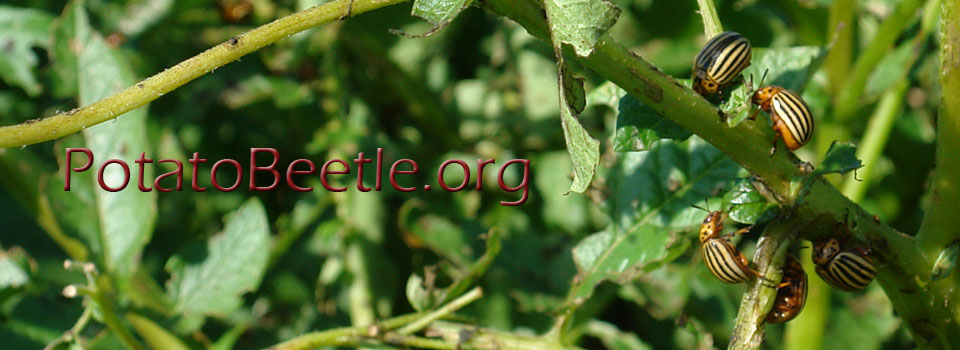Krey, K. L., C. K. Blubaugh, J. T. Van Leuven, and W. E. Snyder. Environmental Entomology, nvz123, https://doi.org/10.1093/ee/nvz123
Soil chemistry and microbial diversity can impact the vigor and nutritive qualities of plants, as well as plants’ ability to deploy anti-herbivore defenses. Soil qualities often vary dramatically on organic versus conventional farms, reflecting the many differences in soil management practices between these farming systems. We examined soil-mediated effects on herbivore performance by growing potato plants (Solanum tuberosum L.) in soils collected from organic or conventional commercial farm fields, and then exposing these plants to herbivory by green peach aphids (Myzus persicae Sulzer, Hemiptera: Aphididae) and/or Colorado potato beetles (Leptinotarsa decemlineata Say, Coleoptera: Chrysomelidae). Responses of the two potato pests varied dramatically. Survivorship of Colorado potato beetles was almost 3× higher on plants grown in organic than in conventional soils, but was unaffected by the presence of aphids. In contrast, aphid colony growth was twice as rapid when aphids were reared alone rather than with Colorado potato beetles, but was unaffected by soil type. We saw no obvious differences in soil nutrients when comparing organic and conventional soils. However, we saw a higher diversity of bacteria in organic soils, and potato plants grown in this soil had a lower carbon concentration in foliar tissue. In summary, the herbivore species differed in their susceptibility to soil- versus competitor-mediated effects, and these differences may be driven by microbe-mediated changes in host plant quality. Our results suggest that soil-mediated effects on pest growth can depend on herbivore species and community composition, and that soil management strategies that promote plant health may also increase host quality for pests.
